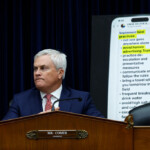The Republican presidential candidate, now the elected president of the United States, promised in July to transform the U.S. into the «world capital of cryptocurrencies.»
Donald Trump’s election has already impacted the market, with Bitcoin’s price surpassing $90,000 following his victory.
During his campaign, Trump proposed several pro-cryptocurrency initiatives.
He suggested creating a national strategic cryptocurrency reserve to strengthen the U.S. economy. He also proposed reducing federal regulations to foster innovation in the cryptocurrency sector and expressed his intention to remove SEC Chairman Gary Gensler, who has faced criticism for his strict approach to cryptocurrencies. Without clear regulations, this former banker has taken a repressive stance toward cryptocurrencies, aiming to regulate their operation like traditional financial products.
The SEC has sued three major cryptocurrency exchanges—Binance, Coinbase, and Kraken—as well as several startups.
These proposed policies have generated excitement in the crypto industry, which hopes for a more favorable regulatory environment. However, some experts urge caution, noting that implementing these changes will require overcoming complex legislative and regulatory frameworks.
As the Trump administration takes shape, the global cryptocurrency community is closely watching how these promises materialize and their potential impact on the market.
Trump’s return to the White House is seen with optimism in the cryptocurrency sector, with many expecting the U.S. to adopt a more favorable stance toward digital assets.
During his campaign, Trump proposed establishing a national strategic cryptocurrency reserve.
These commitments have already had an impact on the market, with Bitcoin’s price surpassing $90,000 following his electoral victory.
Industry leaders are hopeful that the new administration will implement policies that reduce regulatory barriers and foster innovation in the cryptocurrency space.
These promises have raised expectations for a more crypto-friendly environment in the United States.
Some members of his team are tasked with studying the world of digital currencies to better understand the regulatory expectations, according to The Washington Post.
The prospect of a new Trump presidency boosted Bitcoin, the most popular cryptocurrency, by more than 25% in just one week.
«The lack of clear rules has not only stifled innovation but has also driven companies in the sector to countries with more transparent regulations,» said Katherine Snow, General Counsel of Thesis, a company developing Bitcoin-based applications.
A bill currently in the Senate proposes that another regulator, the CFTC (Commodity Futures Trading Commission), take over oversight of the sector with a more pragmatic, less dogmatic approach. This regulatory shift could «accelerate the approval of new investment products» and «increase the flow of capital» into the digital currency ecosystem, according to Simon Peters, an analyst at eToro.
Chandra Duggirala, head of the Tides.Network incubator, expects a shift in policies under the Biden administration, which are seen as «unfavorable to cryptocurrencies in the U.S.» In particular, he pointed out the pressure on traditional banks to discourage them from collaborating with blockchain entrepreneurs—the underlying technology behind digital currencies.
«We’d like talented people not to feel intimidated when joining this industry,» said Burnt Banksy, founder of the Xion platform.
Often stigmatized or portrayed as a haven for speculators and even criminals, the world of alternative currencies hopes to normalize its existence with Donald Trump in the White House.
Michael Cahill, a financial data expert at Douro Labs, is confident in Trump’s commitment to cryptocurrencies, noting that he «launched his own projects» in this space. In September, the billionaire and his three sons partnered with several industry leaders to launch World Liberty Financial, a cryptocurrency placement and lending platform.
The executives at Coinhouse foresee the Trump administration encouraging payments in «stablecoins,» cryptocurrencies pegged to other currencies, usually the dollar, which significantly limits their volatility.
The legitimization of cryptocurrencies could also promote the establishment of national bitcoin reserves, a proposal Trump mentioned in July. According to Simon Peters, the U.S. government already holds approximately 210,000 bitcoins, mainly obtained from seizures in legal cases, which are worth around $18 billion
Breaking: President-elect Donald Trump’s social media company is reportedly in advanced negotiations to acquire the cryptocurrency trading platform Bakkt, according to a report by the Financial Times on Monday late afternoon. The publication cited two individuals familiar with the matter.
About The Author
Maria Herrera Mellado
María Herrera Mellado es una abogada respetada, licenciada en EE.UU. y España, con un doctorado en Ciencias Jurídicas y títulos de la Universidad de Granada, la Universidad de Arizona y la Florida International University. Con amplia experiencia en derecho internacional, inversiones, inmigración, derechos humanos, protección de la privacidad y lucha anticorrupción, ha asesorado a organizaciones y políticos hispanoamericanos. Ha escrito sobre seguridad nacional e inmigración, protección de datos, derecho constitucional, consumo financiero y derecho bancario en revistas internacionales y coescribió libros publicados en Perú y Colombia. Reconocida por su servicio comunitario, es considerada una de las mujeres más influyentes de Florida. Es experta en varios idiomas y participa frecuentemente en debates en canales como Univisión y Telemundo
María Herrera Mellado is a highly respected attorney, licensed to practice in both the U.S. and Spain. She holds a PhD in Legal Sciences and has earned degrees from prestigious institutions, including the University of Granada, the University of Arizona, and Florida International University.With extensive expertise in business law, immigration, human rights, consumer protection, privacy protection, and anti-corruption, María has advised a wide range of organizations and Hispanic American politicians. She has published numerous articles on data protection and banking law in international legal journals and co-authored books on these topics, which have been published in Peru and Colombia. Known for her strong commitment to community service, María is recognized as one of the most influential women in Florida. Fluent in multiple languages, she frequently participates in high-profile debates on networks such as Univisión and Telemundo, where she shares her insights on key legal and social issues.



